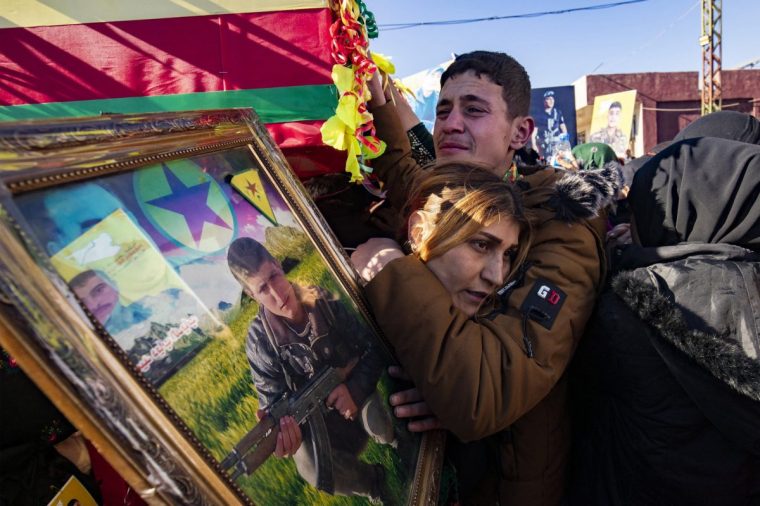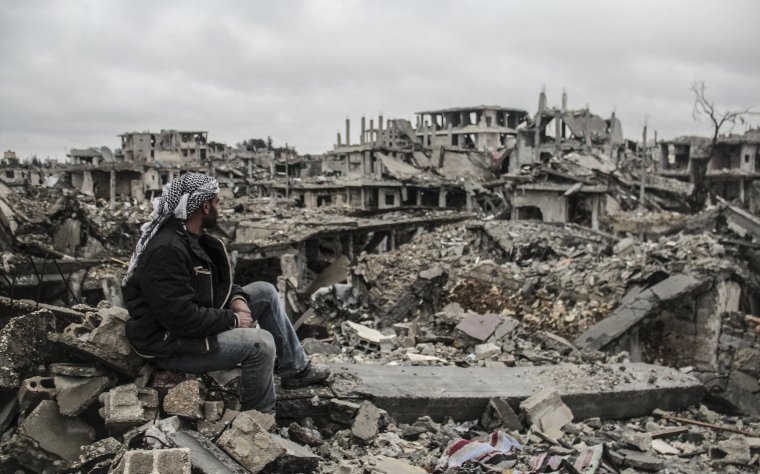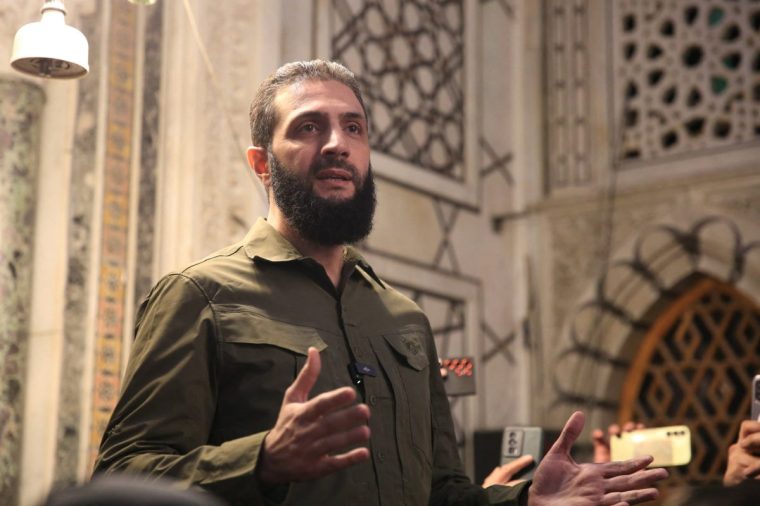Turkish tanks and heavy weapons were reportedly deployed this week in the border town of Suruç, opposite the city of Kobane in northern Syria, raising fears among Kurdish residents of a potential new war.
Since the fall of Bashar al-Assad, Turkish-backed armed groups known as the Syrian National Army (SNA) have launched assaults on the the Kurdish-led Syrian Democratic Forces (SDF).
Earlier this month, the SNA took the towns of Manbij and Tal Rifaat from Kurdish forces. They are now threatening Kobane, a city renowned for its 2015 defence against a devastating Isis siege.
For years, US troops have fought alongside the SDF against Isis in north-eastern Syria, and worked together to prevent its resurgence. The SDF also manages prisons housing thousands of Isis fighters and their families.
The conflict between Turkey and Kurdish-led forces stems from Turkey’s view of the SDF as a PKK affiliate, which has fought Turkey for over 40 years. The SDF denies these links.
Turkey has launched three military operations since 2016 to prevent a Kurdish-controlled autonomous region from emerging along its border
On Wednesday, US State Department deputy spokesperson Vedant Patel said a US-backed ceasefire between Kurdish forces and Turkish-backed groups in northern Syria was holding.
“We’re closely monitoring the situation around Kobane, and while the situation is fluid, we’re not seeing large-scale fighting or large-scale incursions,” Patel said.

But Kurdish officials said Turkey-backed factions continued to attack the key site of the Tishreen Dam and Qarqozak Bridge.
“Despite the fall of the Assad regime – a day we had all hoped for to end the era of darkness, dictatorship, and the war machine in Syria – Turkey and its allied factions have other goals. They continue to attack already-liberated areas under the protection of the SDF,” Siyamend Ali, head of the Kurdish People’s Protection Units (YPG) press office, told The i Paper.
“For us, Kobane is a symbol of the fight against the terrorist organisation Isis. If Kobane falls, it would mark a victory for terrorist groups, particularly Isis. Therefore, the international community, especially the international coalition, must make greater efforts to prevent Turkey’s intervention.”
He said that Turkey-backed forces were continuing to attack the dam and bridge using all types of heavy weapons, supported by Turkish air cover: “As of now, no real ceasefire agreement has been reached.”
According to the UN, the fighting has aled to water shortages for at least two million people in Aleppo city and the eastern countryside due to the suspension of two water stations following damage to the Tishreen Dam on 10 December.
Omer Ismail, a journalist living in Kobane, said there had been no electricity for two weeks, “which also affects the water supply since water pumps rely on electricity. People are forced to use generators and pay for water.
“The situation has deteriorated since 2019, when American forces withdrew during the Turkish offensive in [the northern Syrian town of] Serê Kaniyê.
He said US soldiers had returned recently to Kobane to observe the ceasefire but had recently left for Raqqa, the regional capital. “Their presence was seen as a stabilising force, but now there are no Americans in Kobane, leaving the city feeling vulnerable.

“Some families in Kobane have left for Raqqa or Qamishli, but the majority remain in their houses, uncertain whether they will need to flee as the situation develops,” he added. Many civilians in Kobane have already packed their bags just in case.
The Syrian Kurds hope that the new Islamist-led administration in Damascus that toppled Assad will recognise some form of Kurdish autonomy and rights.
The de facto leader of Syria, Ahmed al-Sharaa, formerly known as Abu Mohammed al-Jolani – a former al-Qaeda militant – has said that the future Syria will include the Kurds as one of its foundations and “everyone will have their rights”.
So far, the Kurds have not engaged in any clashes with the Sharaa-led Hayat Tahrir al-Sham, such as in Aleppo – unlike groups backed by Turkey.
YPG’s Ali said there had been some low-level meetings between the Kurds and the rebels led by Sharra.

“No high-level negotiations or formal talks have begun yet – aside from messages exchanged through the media. We look forward to starting negotiations as soon as possible to avoid further catastrophic mistakes in the region.
“Dozens of armed factions continue to attack us. The Damascus government must first stop these attacks and create an environment conducive to dialogue. We remain open to any proposals that serve to stop the war and benefit all Syrians,” he added.
The co-chair of Syria’s Kurdish-led Democratic Union Party (PYD), Salih Muslim Mohammed, told The i Paper during a press conference on Wednesday that they are still waiting for an answer from Sharaa. “Our delegation is ready, but we haven’t received any positive answers yet.”
Turkish intelligence chief Ibrahim Kalin visited Sharaa in Damascus last Thursday. “Turkey moved very fast,” Mohammed added, speculating that Turkey may be trying to shut the door on Kurdish relations with the new administration in Damascus.
Sinam Mohamad, a representative of the Kurdish-led Syrian Democratic Council mission in the United States, said they were worried about what will happen if the Turkish-backed groups are allowed to enter Kobane.
“We need the Biden administration to put maximum pressure on Turkey with all available means to stop this brash, irresponsible, dangerous action by Turkey. We hope that the Biden administration too, will use its influence to put an end to the fighting. We are ready for peace, and Turkey is the only actor standing in the way.”


'President Musk' is flexing his muscles and revealing how weak Trump is